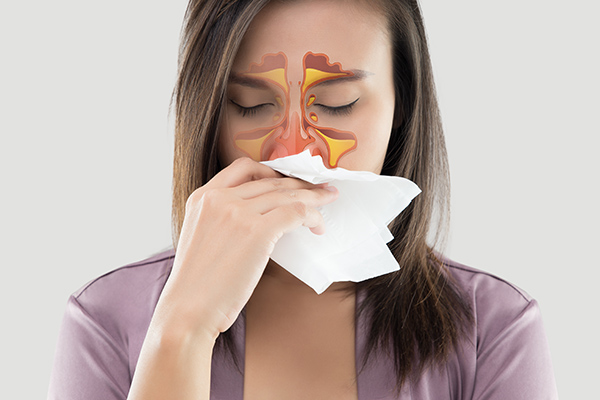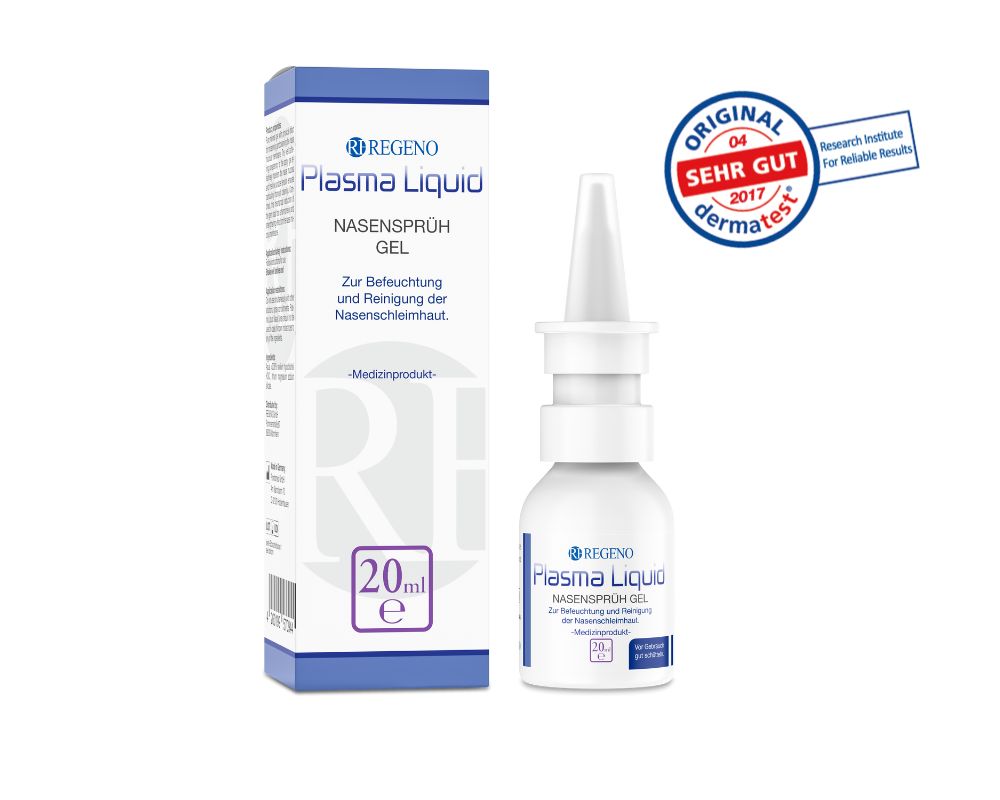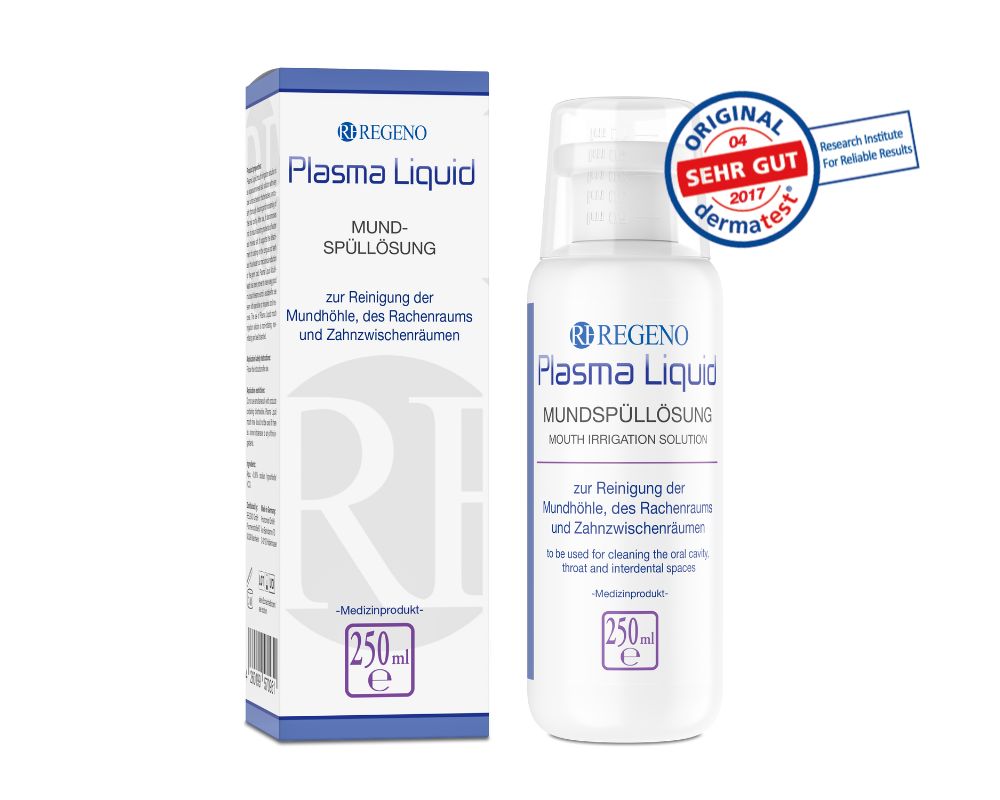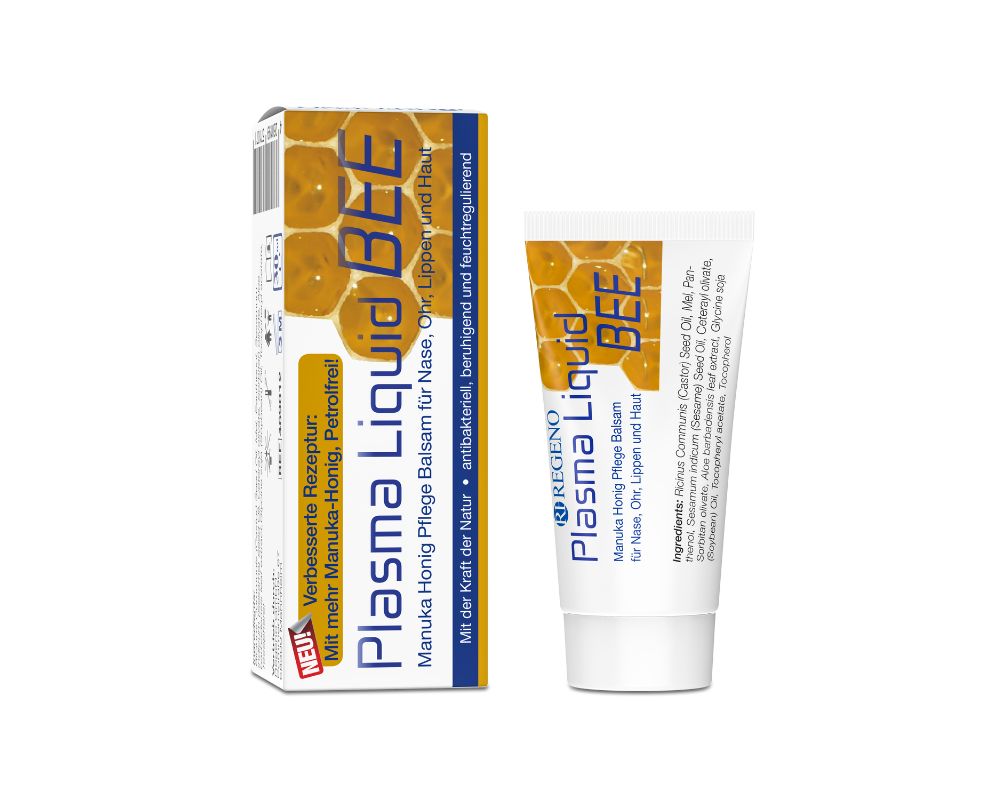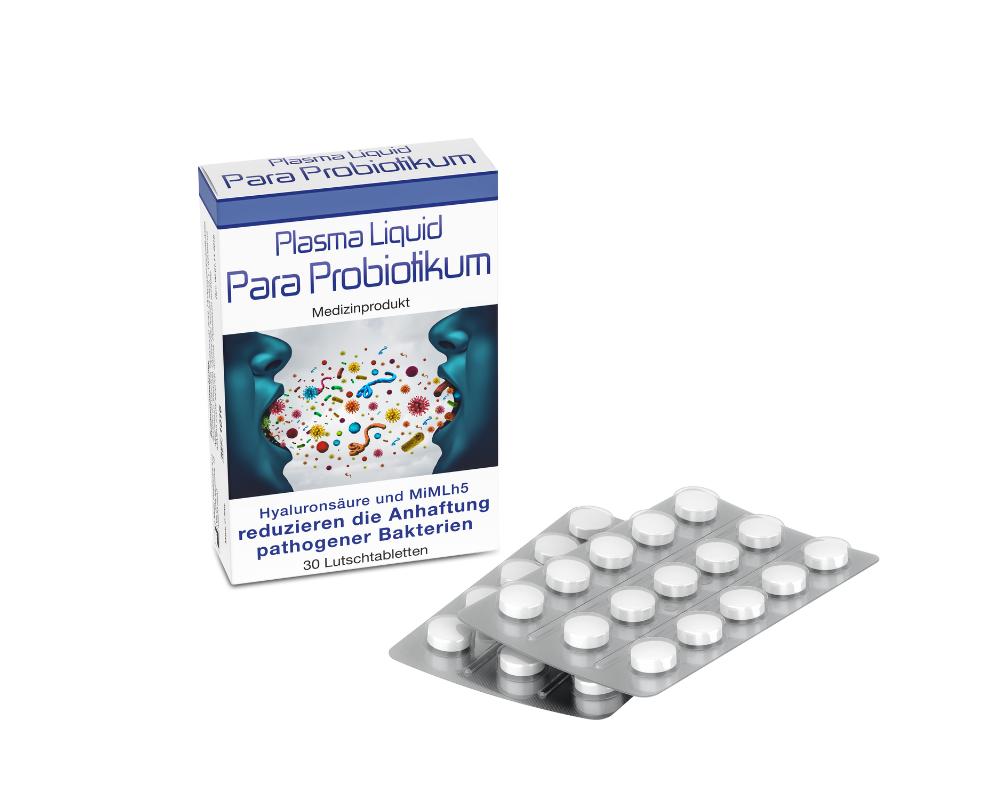Sinusitis or sinus inflammation is an inflammatory change in the mucous membrane in the sinuses, brought about by viruses or bacteria. A distinction is made between acute and chronic sinusitis. An estimated 13 million patients in Germany develop acute sinus infections each year. Frontal or maxillary sinusitis, in other words an inflammation of the frontal or maxillary sinuses, rank among the most common forms of sinusitis. If several sinuses are infected at the same time, this is called polysinusitis, whereas pansinusitis means inflammation of all sinuses.
Sinusitis – the symptoms
At the onset, sinusitis symptoms resemble those of a common cold: it's harder to breathe through the nose, accompanied by an increase in purulent to yellowish-green discharge from the nose, and slimy secretion builds up in the throat area. These symptoms are accompanied by headaches and a pressure sensation, which can spread from the forehead over the eyes up to the back of the head as a piercing, throbbing pain. Increased blowing of the nose additionally leads to more frequent nosebleeds.
In case of severe inflammation, patients also suffer from fever, fatigue, and visual disturbances. A heavy, slimy cough and persistent tickle in the throat are also often signs of a sinus infection. Patients generally suffer from consistent fatigue, lower productivity, and – as a result of the constant pain sensation – a slightly dazed feeling from time to time.
What is the difference between acute and chronic sinusitis?
Acute sinusitis usually lasts 8–12 weeks and tends to be triggered by viruses, whereas bacterial infections only make up around 20–35% of all cases. In contrast to chronic sinusitis, acute sinusitis is usually easier to identify, with more pronounced symptoms such as a stuffy nose or yellowish-green discharge from the nose. The symptoms often become more severe when bending over or down, and they can be alleviated with medication or antibiotics.
Chronic sinusitis, on the other hand, lasts a lot longer than 12 weeks, and is usually the result of an unhealed acute sinus infection. The disease often progresses in the background, with the most pronounced symptoms being greater difficulty in breathing through the nose and a pressure sensation in the head or face. Patients are constantly tired and less productive. Frequent colds can also be a sign of chronic sinusitis. If treatment with medication proves ineffective, sinus surgery may be considered.
Sinusitis – treatment
By treating your sinusitis correctly and taking the right medication, you can reduce inflammation, restore drainage of the mucus, and clear up your sinuses.
To improve the discharge of mucus from your nose, you should drink a lot of fluids and ensure that the air you breathe has a high relative humidity. Nasal irrigation, salt water sprays, and inhaling liquefy the nasal secretion, which makes it much easier for you to blow your nose.
Medical products such as our Plasma Liquid® Nasal Spray Gel help treat your sinusitis together with decongestant nasal sprays and drops. You can get these medications, as well as medicine containing myrtol or cineol, from your pharmacy without a prescription.
Plasma Liquid® Nasal Spray Gel
Our Plasma Liquid® products help radically reduce the number of bacteria and viruses, explaining their particularly well-established effectiveness in fighting germ-related diseases such as sinus infections. Our nasal spray gel can, for example, also help alleviate the symptoms of hay fever and pollen allergies.
The Plasma Liquid® Nasal Spray Gel is a mineral gel with a physical moistening, cleaning, and decontaminating effect on the nasal mucosa. Already after the first application, 99.9% of the relevant pathogens are killed, fighting the inflammation and noticeably alleviating the symptoms.
The best way to apply our Plasma Liquid Nasal Spray Gel is in the morning, right after getting out of bed, with three sprays into each nostril. After 2–3 minutes, you can simply blow out all secretions and slime that has built up overnight. Then, apply three sprays per nostril once more and repeat the application 2 to 4 times a day. If you experience a burning sensation or strong sneezing fits, this is not due to the medication, but rather a side effect which can be attributed to the inflamed mucous membranes.
The tolerability of our products to the skin and mucous membranes has been assessed as "very good" by dermatest in 2017, and its effects are merely topical, i.e. where required. The body is not subjected to any additional stress, unlike with conventional antibiotics, and there is no threat of resulting resistance, allergies, or dependencies. As all our products are manufactured without alcohol or cortisone, they are also suitable for pregnant women and children.
Sinusitis and antibiotics
If your sinusitis is of bacterial origin or if the symptoms become more severe due to a secondary bacterial infection, your doctor might prescribe an antibiotic. It is very important that you continuously take the antibiotic medication, in sufficient doses and for as long as prescribed. If you stop taking your antibiotic medication at an earlier stage, some of the bacterial pathogens might remain in the body. This not only increases the risk of another infection, but the pathogens might become resistant to the antibiotic in the worst case, with the medication losing its effects.
If you have a viral infection, antibiotics have no effect whatsoever, and in most cases your symptoms will improve by themselves even if left untreated.
Sinusitis – when should I go to the doctor?
If the symptoms persist and you don't see any improvements after a few days of taking medication, it's definitely time to visit a doctor. If you have a fever, swollen face, or persistent headache, you must visit a doctor to make sure the sinusitis doesn't spread.
Is sinusitis contagious?
Sinusitis is only contagious if it is triggered by a viral or bacterial pathogen. Viruses are the most common cause of sinus infections, whereas bacteria less frequently cause the underlying infection.
Viruses can easily spread via droplets – airborne transmission from person to persons –, which is why you should wash your hands regularly and thoroughly (especially before eating) during periods in which colds are common. To protect yourself from sinusitis infections, it helps to strengthen your immune system – through a healthy diet or regular exercise in the fresh air, for example.

